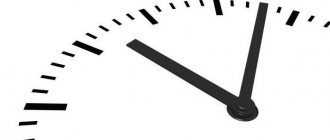The procedural laws of Russia proclaim such a principle of legal proceedings as the immutability of the composition of the court. This means that the judge who began hearing the case makes the final decision on it. Replacement occurs only in exceptional cases. For example, in accordance with Art. 18 of the Arbitration Procedural Code of the Russian Federation, it can occur when a judge is ill for a long time, died, his powers were suspended or he resigned. Similar rules for replacing judges are provided for in civil, criminal and administrative proceedings.
But what if the participants in the proceedings do not agree with the actions of the judge and demand that he be replaced - is this possible? Yes, it's possible. One of the most important tools for ensuring judicial impartiality and independence when considering cases is the institution of recusal of a judge. How to use it is described in detail in this article.
Grounds for disqualifying a judge
The grounds for disqualifying a judge are listed in the articles of the Civil Procedure Code of the Russian Federation. They are mainly related to the judge’s possible interest in the outcome of the case. The judge may be someone’s relative, or may have previously taken part in the case in a different capacity, including considering the case as a judge of a different instance. The judge who was the judicial conciliator in this case is subject to recusal.
Procedure
There is a specific procedure for challenging a judge. Each point must be observed.
- It is necessary to check whether there are proven grounds for carrying out the procedure.
- All available evidence is prepared for presentation to the court.
- An application to disqualify a judge in civil proceedings is drawn up in accordance with the rules established by law.
- Before considering the case on its merits, the petition is submitted to the judicial authority.
If the judge independently conducts the case, he will also consider the application. With collegial conduct, the order of the procedure changes.
If a challenge is filed against one judge, the decision is made by the remaining members of the panel. The result is determined based on voting.
If there is an equal number of votes “for” and “against”, a positive decision on the application is made.
Sometimes a petition is filed to remove several participants. The board considers the appeal and makes a decision also by voting.
Drawing up an application
A challenge can be made orally or in writing. We recommend that statements to the court always be made in writing. In this case, the content of the application and the grounds for challenging the judge will correspond exactly to what you wanted to indicate.
When drawing up an application to challenge a judge, download our sample. Fill it out taking into account your situation. The application must contain the following information:
- court where the application is filed
- person filing a challenge and its procedural status
- parties to the case, essence of the claim, civil case number
- title of the document: Application to disqualify a judge
- grounds for withdrawal
- evidence of grounds for challenge
Arbitrage practice
An analysis of judicial practice shows that many petitions remain unsatisfied. This is due to the fact that the statements provide reasons that cannot be accepted as objective in accordance with the law.
For example, in the court of general jurisdiction of the first instance of the city of Petropavlovsk-Kamchatsky, a civil case was heard on the complaint of citizen V. to officials of the city administration. But Judge Ch. postponed the hearing for a month based on a petition from an administration representative.
This is important to know: The procedure for issuing certificates of incapacity for work: rules and conditions
Before the case was considered, lawyer V. filed an application to disqualify judge Ch. Reasons were given according to which doubts might arise about the impartiality of the judge.
The request was not granted. The ruling stated that the circumstances cited in the application were not specified in the Code of Civil Procedure of the Russian Federation.
Most often, in refusals to satisfy applications, it is noted that the documents do not contain the circumstances provided for by the Code of Civil Procedure of the Russian Federation. Therefore, they are drawn up only with provisional grounds and are not supported by specific documents.
The judge's recusal must be made before the case is considered on the merits. But if new circumstances emerge at the time of the preliminary hearing, the parties also have the right to file a motion.
It must be expressed in writing and have grounds for challenge. Each circumstance is documented using applications.
After consideration of the appeal, it may or may not be satisfied.
Impartiality is the basis of the administration of justice. Each party hopes that officials, when considering a claim, will be guided only by the rules of law, and not by personal preferences.
If the interested person has evidence that the judge will not be able to make an objective decision, it is necessary to challenge the judge in the prescribed manner.
Filing an application to disqualify a judge
You can file a petition to disqualify a judge orally or in writing. It is preferable to use a written statement of recusal of the judge, as it will be included in the case file. And its content, unlike an oral statement of recusal, cannot be distorted or interpreted differently. The text of the petition must provide specific circumstances of the impossibility of the participation of this judge in the consideration of the case.
The Civil Procedure Code does not contain requirements for the content of an application for challenge. However, it is necessary to adhere to the general rules for drawing up business documents, including documents addressed to the court. In order to ensure a high-quality and competent execution of the application, we recommend using the general rules for preparing documents for the court.
We recommend filing an application to challenge a judge at the beginning of the court hearing, after clarification of the right to file an application for recusal. Although you can challenge at any stage of the trial, up to the removal of the judge to the deliberation room.
Remove a judge: how challenges work in civil and arbitration proceedings
It is possible to challenge a judge, but it is very difficult, says Olga Duchenko, senior lawyer in the corporate and arbitration practice of AB Kachkin & Partners Kachkin & Partners Federal Rating. PPP group/Infrastructure projects group Land law/Commercial real estate/Construction Company profile. The likelihood of a challenge is highest when family or official ties have been established between a party to the case and the judge, says Ivan Veselov, partner at Bryan Cave Leighton Paisner (Russia) LLP Bryan Cave Leighton Paisner (Russia) LLP Federal rating. foreign trade group/Customs law and currency regulation group PPP/Infrastructure projects group Land law/Commercial real estate/Construction group Intellectual property (including disputes) group Compliance group Corporate law/Mergers and acquisitions group International arbitration group Tax consulting and disputes (Tax disputes) group Natural resources/Energy group TMT (telecommunications, media and technology) group Transport law group Pharmaceuticals and healthcare group Financial/Banking law group Digital economy group Antitrust law (including disputes) group Arbitration proceedings (major disputes - high market) group International litigation group Tax consulting and disputes (Tax consulting) group Labor and migration law (including disputes) group Family and inheritance law group Criminal law group Private wealth management group Bankruptcy (including disputes) 3rd place By revenue 3rd place By number of lawyers 5th place By revenue per lawyer (more than 30 lawyers) Company profile. Lawyer KA Delcredere Delcredere Federal rating. group Arbitration proceedings (major disputes - high market) group Bankruptcy (including disputes) Company profile Maxim Stepanchuk claims that requests for challenges are practically not satisfied, but still help to show the court that the party has doubts about its impartiality.
The grounds for disqualifying judges in arbitration and civil proceedings largely coincide.
In the APC there are more grounds for challenge, but in the Code of Civil Procedure there is one special basis: when the judge is a relative of the person participating in the case or his representative.
The challenge must be filed before the hearing of the case on the merits. An exception is if the basis for challenge became known after the start of the consideration of the case. That is, such a petition must be submitted in the first instance, explains Duchenko. It is useless to refer to the grounds for challenge when appealing a decision to a higher authority (case No. A27-12090/2019).
Most often, says Duchenko, the parties claim that the judge is not impartial (No. A28-15565/2019). But it is usually difficult to provide specific facts indicating this, the lawyer believes. Such evidence must refute the presumption of impartiality of the court, which is confirmed by (case No. A32-27296/2018). It is not easy to convince the courts; in most cases they refuse, citing the fact that the applicant has not proven the existence of grounds for challenge. A typical example of such a refusal is the decision of the 2nd AAS in case No. A28-15565/2019.
The judge will not be removed if
- he had previously considered a case involving the same parties (cases No. A37-1556/2018, No. A51-7223/2018);
- the applicant in fact simply does not agree with the procedural actions of the judge, for example, with satisfying someone else’s petition (cases No. A60-23170/2020, No. A50-8722/2017);
- they are trying to use recusal as a way to protect against the demands of the other party (case No. A67-2763/2016).
It is possible to disqualify a judge in an arbitration process if he “made public statements or gave an assessment of the merits of the case under consideration outside the framework of the trial.” And public statements are speeches in the media, publication of articles, interviews and speeches before an audience, the courts explain (cases No. A56-109239/2017, No. A37-1556/2018)
The judge will consider the petition himself
Since 2021, after changes to the APC, it has become more difficult to recusate a judge, says Veselov. Until October 1, 2021, a petition to disqualify a judge was considered by the chairman of the court, his deputy or the chairman of the judicial panel. And now the judge himself resolves the application for his challenge. “In my practice, a judge has never confirmed that he is not impartial,” says Duchenko.
The new norm is criticized by Stepanchuk: in his opinion, it contradicts common sense and simplifies the consideration of challenges for judges.
Until 2021 Art. 25 of the APC had a “chilling” effect on judges, who sometimes neglected the rules of the trial. Now, in fact, it has lost its meaning: in 99.9% of cases, the judge, after a “monologue with himself,” will not find grounds for his own challenge
Ivan Veselov, partner Bryan Cave Leighton Paisner (Russia) LLP Bryan Cave Leighton Paisner (Russia) LLP Federal rating. foreign trade group/Customs law and currency regulation group PPP/Infrastructure projects group Land law/Commercial real estate/Construction group Intellectual property (including disputes) group Compliance group Corporate law/Mergers and acquisitions group International arbitration group Tax consulting and disputes (Tax disputes) group Natural resources/Energy group TMT (telecommunications, media and technology) group Transport law group Pharmaceuticals and healthcare group Financial/Banking law group Digital economy group Antitrust law (including disputes) group Arbitration proceedings (major disputes - high market) group International litigation group Tax consulting and disputes (Tax consulting) group Labor and migration law (including disputes) group Family and inheritance law group Criminal law group Private wealth management group Bankruptcy (including disputes) 3rd place By revenue 3rd place By number of lawyers 5th place By revenue per lawyer (more than 30 lawyers) Company profile
Duchenko does not share his colleagues’ dissatisfaction. The fact that the judge himself considers the application for his challenge helps to avoid abuse of procedural rights, she believes. Previously, applications for challenges could be filed in order to delay the consideration of the dispute, the lawyer explains. The Constitutional Court spoke about the same in relation to the Civil Procedure Code back in 2011 in ruling No. 697-О-О. Independent consideration of the challenge reduces the likelihood of the process being delayed, the Constitutional Court indicated then.
Arbitration judges also defend the new approach. Stanislav Sidorkin, deputy chairman of the Arbitration Court of the Sverdlovsk Region, notes this advantage: the judge can listen to the arguments of the applicant for the challenge and the other side of the process, but the chairman did not have such an opportunity. Therefore, he could refuse in cases where the judge grants the challenge (Sidorkin S.V. Recusal of a judge in the arbitration process: a step forward or an element of uniformity? // Arbitration and Civil Process, 2021, No. 5, pp. 16–20).
The decision to refuse a petition for recusal is not appealed separately from the decision of the first instance (for example, case No. A21-8039/2015). This act does not prevent the further progress of the case, explains Duchenko.
If the court unreasonably refused to satisfy the application for challenge, then you can refer to this when appealing the judicial act, which ends the consideration of the case on the merits.
Olga Duchenko, senior lawyer in the corporate and arbitration practice of AB Kachkin & Partners Kachkin & Partners Federal Rating. PPP group/Infrastructure projects Land law group/Commercial real estate/Construction Company profile
An illegal refusal can be considered a significant violation of procedural law, which led to the adoption of an unjust decision, Veselov adds. You can complain about it to the chairman of the court and to the qualification board.
References to lack of impartiality do not always work in higher courts either. For example, the 18th AAC considered that the argument about the judge’s bias could not be verified on appeal and refused to challenge him in case No. A76-20658/2016.
Recusal
If the judge himself sees the grounds for recusal, he must refuse to consider the case - recuse himself. There are few such examples in practice, says Duchenko. As a rule, she adds, the reasons for recusal are not written in judicial acts, but only indicate that the judge was replaced in this way.
The judge recused himself after Governor Tuleyev addressed the Chairman of the Court of Justice
According to Veselov, in the arbitration process, recusals occur when a potential conflict of interest goes beyond the courtroom and becomes public. And as an example, he cites the self-recusal of the judge of the Administrative Court of the Kemerovo Region Andrei Dushinsky - the representative of one of the parties was his classmate (case No. A27-18005/2012). The key here is not potential interest, but the appeal of the governor of the Kemerovo region to the chairman of the court and the attention of the press, Veselov believes.
But there are also self-recusals, which judges absolutely take of their own free will. Veselov refers to a case where the judge of the Arbitration Court of the Ural District, Ekaterina Serditova, recused herself because the materials contained an opinion on a legal issue from Vladimir Yarkov, her former boss and scientific supervisor (No. A60-1260/2009).
In addition, if the judge who was supposed to resolve the case published the operative part of the decision in the file of arbitration cases a couple of days before the hearing, this is a reason to recuse himself, considers the Arbitration Court of the West Siberian District (case No. A27-13456/2020).
VKKS spoke about punishment for insulting colleagues and housing and communal services debts
If a judge does not recuse himself in a timely manner, he may be subject to disciplinary action. For example, Stavropol judge Mikhail Ivanov received a reprimand for making decisions on the basis of which his wife later registered ownership of real estate.
The deputy chairman of the Pervomaisky District Court of Izhevsk, Alexandra Khitalenko, at first did not satisfy the challenge filed against her, and then recused herself. True, after the chairman of the court conducted an internal investigation due to a report about the judge’s friendship with the defendant’s representative. The regional qualification board of judges issued a warning to Khitalenko.
You may receive a fine for an unjustified challenge.
A recusal in itself cannot be considered an abuse of procedural rights and contempt of court, says Duchenko. But if a participant in the process repeatedly requests a challenge on the same grounds, there is a risk that the court will consider this an abuse and fine the applicant, she adds. For example, the 15th AAC decided that multiple requests for recusal on the same grounds constitute contempt of court. As a result, the party’s representative was fined 2,500 rubles. (Case No. A32-40520/2015). The maximum fine under the APC for citizens is twice as large.
Lawyers reveal secrets: how to prevent the process from being delayed
By applying for a challenge, you can obtain a break or postponement of the hearing. In Veselov’s practice, there was a case when a party challenged the case at almost every hearing and this significantly slowed down the consideration of the case.
If you use obscene or ironic expressions in your recusal request, you may also be fined for this, Duchenko warns. Veselov believes that fines in the agrarian and industrial complex are insignificant, so the punitive function is poorly performed.
“Another way to deal with unscrupulous participants in the process is to place the burden of paying legal costs on them,” says Veselov. – This can be more effective than a fine. Of course, if there is something to collect."
But there is also practice that is positive for applicants. Thus, in one bankruptcy case, the creditor filed several challenges to the judge. He decided that this was disrespect: they were trying to put pressure on him, and the attempt to withdraw was a complaint about the “manner of conducting the process.” The creditor's lawyer was fined 2,500 rubles. The 9th AAS decided that this was illegal. The petition did not contain “derogatory judgments about the professional and personal qualities of the judge,” which means there is no disrespect here. “Nine” also noted that it is impossible to summarize challenges from different separate disputes. In each of them, a party can exercise such a right. The AS of the Moscow District “strengthened” this approach (case No. A40-163832/2017).
What if the judge gets offended?
Of course, a judge must be impartial and neutral, but he is also a human being. Even if the right to challenge is not abused, the judge may perceive the statement not neutrally, but as a personal insult, notes Duchenko. This means he will be more sympathetic to your opponent. As a result, the court may prevent a party from exercising its rights and not meet halfway interests in certain situations, says Veselov. For example, it will limit the time for a representative to speak.
Recusal of a judge is a last resort and not a normal course of action. You should not file such a petition for any reason, warns Stepanchuk.
My task as a lawyer is to protect the interests of the client. This is possible when at a meeting I can calmly explain my position to the court, and the court is determined to listen to me. If recusal does not help this, I will not file it. And vice versa, I will declare it if I see that a recusal will attract the court’s attention to the problem and will be able to return the conversation to a working direction.
Maxim Stepanchuk, lawyer at Delcredere Delcredere Federal Rating. group Arbitration proceedings (major disputes - high market) group Bankruptcy (including disputes) Company profile
When there are questions about the impartiality of the entire court
The simultaneous challenge of all judges of a particular court is not expressly provided for in either the APC or the Code of Civil Procedure, says Artem Dantsev, a lawyer in the arbitration practice of VEGAS LEX VEGAS LEX Federal Rating. PPP group/Infrastructure projects group Land law/Commercial real estate/Construction group Antitrust law (including disputes) group Arbitration proceedings (major disputes - high market) group Tax consulting and disputes (Tax consulting) group Natural resources/Energy group Insurance law group Environmental law group Corporate Law/Mergers and Acquisitions group Tax consulting and disputes (Tax disputes) group Bankruptcy (including disputes) 2nd place By revenue 3rd place By revenue per lawyer (more than 30 lawyers) 8th place By number of lawyers Company profile. But in exceptional cases this can be achieved. In 2011, in the case of Igor Kabanov, the ECHR confirmed that such a possibility exists. Kabanov was a lawyer; the chairman of the Arkhangelsk Regional Court complained about him to the Bar Association. That is why the lawyer doubted that the judge of this court would be able to be objective when considering a complaint about the outcome of the disciplinary proceedings in the chamber.
It is necessary to justify that it is impossible to form the composition of the court to consider the case, because reasonable doubts may arise about the impartiality of any judge.
Artem Dantsev, lawyer in arbitration practice VEGAS LEX VEGAS LEX Federal rating. PPP group/Infrastructure projects group Land law/Commercial real estate/Construction group Antitrust law (including disputes) group Arbitration proceedings (major disputes - high market) group Tax consulting and disputes (Tax consulting) group Natural resources/Energy group Insurance law group Environmental law group Corporate Law/Mergers and Acquisitions group Tax consulting and disputes (Tax disputes) group Bankruptcy (including disputes) 2nd place By revenue 3rd place By revenue per lawyer (more than 30 lawyers) 8th place By number of lawyers Company profile
Arbitration courts agreed with challenges of the entire court composition when another judge of the same court participated in the case as a third party (case No. A78-6489/2011) or initiated an audit, based on the results of which the court decided the issue of administrative liability (case No. A26-12971/ 2018).
The likelihood of achieving a recusal of the entire court is higher in general jurisdiction, says Dantsev. For example, the Tambov and Sverdlovsk regional courts took into account the family and marital relations of the person participating in the case with the chairman of the court (cases No. 33-1699/2014 and No. 33-3614/2013) and even with another judge who is not considering this dispute (No. 33-3287/2012). Duchenko gives examples of the removal of the entire court from the Altai and Primorsky regional courts (cases No. 33-1113/2019 and No. 33-9523/2019).
The Supreme Court taught how to determine jurisdiction for inaction
After all the judges are disqualified, the territorial jurisdiction will have to be changed - the case will be transferred to another court. Where exactly is decided differently in arbitration and civil proceedings, notes Dantsev. In general jurisdiction, this is dealt with by a higher court, and in arbitration - by the judge or panel that resolved the request for recusal.
The idea of removing all judges in order to change territorial jurisdiction may not work, warns Dantsev. Here the courts are not bound by normative criteria and may not take into account the opinions of the parties. “Practice knows examples of transferring a case from the Autonomous Court of the Republic of Karelia to the Autonomous Court of the Moscow Region (by analogy with Part 3.1 of Article 38 of the Arbitration Procedure Code) or to the most territorially close court,” he says. But there is also more complex logic. For example, the Lipetsk Regional Court transferred the case to another district court of the same region with the lowest workload of judges (case No. 33-1097/2016).
- Ekaterina Korobka
- Arbitration process
- Civil process
Consideration of an application for challenge
Based on the application for recusal, the judge issues a separate ruling. To make such a determination, the judge must retire to the deliberation room.
If the application to challenge the judge is satisfied, the court session is closed.
The decision to disqualify a judge is not subject to independent appeal. You can include arguments about disagreement with the court’s decision to consider the application for challenge in a complaint against a court decision based on the results of the consideration of the case.
Causes and Effects
Before we talk about why you can file such a petition, let’s look at the subject of the article.
Recusal of a judge is a legally prescribed procedure used in situations where there is information about the existence of an interest on the part of the judge in the outcome of the consideration of the case, as well as other reasons that cast doubt on its objectivity
The reasons for disqualifying a judge are set out in Art. 16 Code of Civil Procedure of the Russian Federation .
However, many participants in court hearings, being confident that the process is not adversarial in nature, ignore the mistakes made by the court in the consideration of the case. The reason is hidden in the hope of an appeal.
But a challenge must be filed in a timely manner, since it is in such a statement that procedural violations are recorded. And in the appellate instance, it will not be possible to refer to previously committed flaws in the legal proceedings unless you make an appropriate appeal.
Procedural violations are grounds for canceling a court decision, but they must be recorded in a timely manner. Otherwise, the appellate court will not be able to consider these facts.
Sample application for disqualification of a judge
Sample application (petition) to disqualify a judge in a civil case, taking into account recent changes in legislation. To file a motion to challenge a judge who is considering a civil case is the right of any person participating in the case. A copy of the application can be given to all participants in the case, since the court will consider such an application taking into account the opinions of other persons in the case.
In _________________________ (name of court) Plaintiff: ________________________ (full name, address)
Respondent: _____________
(full name, address) in civil case No. _______
Definition and legislative regulation
Recusal of a judge is a way to ensure an objective consideration of a dispute. Its essence is the exclusion from the process of a judge who has previously formed his opinion or is in some way interested in the outcome of the case.
Expert opinion
Kostenko Tamara Pavlovna
Lawyer with 10 years of experience. Author of numerous articles, teacher of Law
To understand what a challenge in court is, you should study Articles 16 – 21 of the Code of Civil Procedure of the Russian Federation. There are rules governing the procedure for filing petitions, their consideration, as well as the grounds for replacing a judge in the process.
Under what circumstances is the procedure impossible?
There are some reasons why it is impossible to recuse a specialist from a trial, although prosecutors and victims often refer to these circumstances:
- Previously, the case was considered in court, but after appealing the court decision, it was sent for re-examination by the cassation court. According to Art. 287 of the Arbitration Procedure Code, the cassation court has the right to send the case for re-examination to the same judge. Sometimes a decision is made to consider it by another judicial panel, for which an appropriate instruction is given.
- An extra-procedural application has been submitted to the arbitration court regarding the case, which is under investigation. The presence of this petition cannot be a reason for recusal. But sometimes information from such an appeal can raise doubts about the impartiality of the judge.
Under such circumstances, litigants often face negative decisions on their applications.







